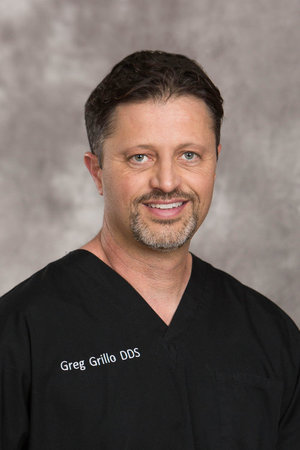Broken Tooth on Adult Teeth: FAQs

1. What’s the difference between an adult tooth and a child’s tooth?

Second, baby teeth look different than adult teeth. Baby teeth are whiter and have thinner layers of enamel than adult teeth. Their roots are also long and slender, but not very deep. That makes them weaker than adult teeth.
Third, a permanent tooth will not grow back once it’s been removed; you only have one set of adult teeth.This is one of biggest reasons why daily dental care is so important, and why it’s important to see a dentist as soon as possible after a tooth injury.
2. Is breaking a permanent tooth a big deal?
Breaking an adult tooth is a very big deal. Broken teeth are a dental emergency that should be examined immediately.
Even a seemingly small break can stress the tooth making it difficult to eat or speak. Breaks also allow an opening for food and bacteria to get stuck, resulting in an infection. Without treatment, a broken tooth could get crushed and become unable to be saved.
We often show our teeth while talking and smiling so it can feel quite embarrassing to have a broken tooth, especially if it’s highly visible. A dentist will take measures to repair your tooth as natural-looking as possible.
3. How do people break their teeth?
The outer covering of your teeth—the enamel—is incredibly strong but there are all sorts of ways that you can chip and break your teeth.
Some teeth are broken by a sudden injury like while playing sports or during a trip and fall. Other times, they can break when we use our teeth for things we’re not supposed to, like opening containers or chewing on a pen.
Teeth that have been weakened over time by decay are more likely to break during normal eating activities. Weakened teeth can break while eating things such as hard candy, chips, apples or granola bars. Chewing on ice is another common culprit.
4. What happens if I bang my teeth but nothing breaks off?
It’s definitely possible to hit your teeth on something without anything breaking off but that doesn’t mean you’re in the clear. You likely still caused damage, even if you can’t see it. This is often referred to as having cracked a tooth.
Some cracks may be shallow but others can extend through the whole tooth. Such cracks weaken the tooth making it more likely to break or get crushed during normal activities. It’s usually very difficult to see cracks like these with the naked eye.
Visit a dentist as soon as possible to have your teeth evaluated. Dentists can use a variety of methods such as microscopes and x-ray to make sure your teeth haven’t been compromised.
5. What are some of the signs and symptoms that I broke or cracked a tooth?
The most obvious signs that you broke a tooth include finding small pieces of tooth fragment or looking in the mirror finding a partial smile looking back. But there are also several signs that aren’t as obvious:
- Facial swelling, especially if it includes the cheek, gums, or jawline
- Sharp pain when biting down or other pressure is applied to your teeth
- Blood or other discharge from around the base of a tooth, near the gum line
- Pain when drinking hot or cold beverages
- Sharp pain that comes and goes—it usually dissipates quickly
Make sure to visit a dentist as soon as possible, no matter what symptoms you’re experiencing. An emergency dentist will properly evaluate your symptoms and situation then recommend treatment.
6. What should I do if I break a tooth?

Breaking a tooth can be a scary experience because it usually happens suddenly, away from home, and outside normal business hours. Even so, do your best to stay calm so you can think clearly. Thinking clearly enables you to communicate your problem to others and to properly take care of the injury.
Contact an emergency dentist in your area immediately and begin to apply the first-aid techniques listed below:
- Rinse out your mouth using lukewarm water.
- Save any broken pieces of tooth. They’ll need to stay moist so you can either pocket them between your gums and cheek or put them in a small container then cover with milk.
- If your whole tooth has been knocked out you can put it back in the socket it came from. When that’s not possible you can save it the same way you would for broken pieces.
- Stop any bleeding by applying pressure to the socket and gums. Do this by biting down on gauze or a paper towel for approximately ten to 15 minutes.
- Reduce swelling by applying a cold pack to the area outside of the broken tooth.
- In the event that it’ll be a while until you see the dentist, you can cover the tooth using over-the-counter dental cement. This is found in most groceries and drugstores.
“We only get one set of natural, permanent teeth. If a tooth breaks, cracks, or chips, it’s good to find out what you can do to repair and preserve your smile. Healthy teeth enhance the quality of your life in a major way.”
7. Will I lose my tooth?
In most cases, it’s possible to save a broken tooth if you take good care of it right after the injury and get to a dentist as soon as possible. Saving the tooth will largely depend on how much tooth is missing and whether any nerve endings are exposed. But, even if the tooth does have to be extracted the dentist can recommend several options in its place.
Relate Posts to Read:
What Is a Fractured Tooth?
Medically Fact-Checked & Written by Our Dental Editorial Team
You can read more about our editorial guidelines by clicking this link and learn more about the Emergency Dentists USA editorial team here.


